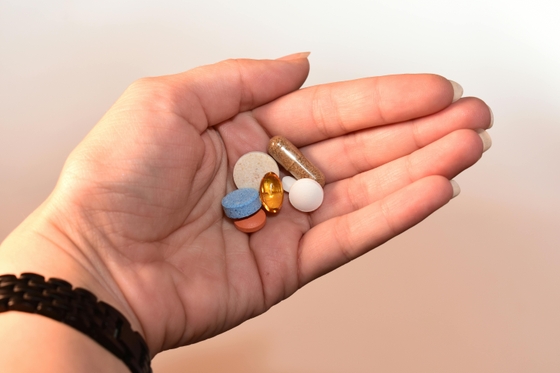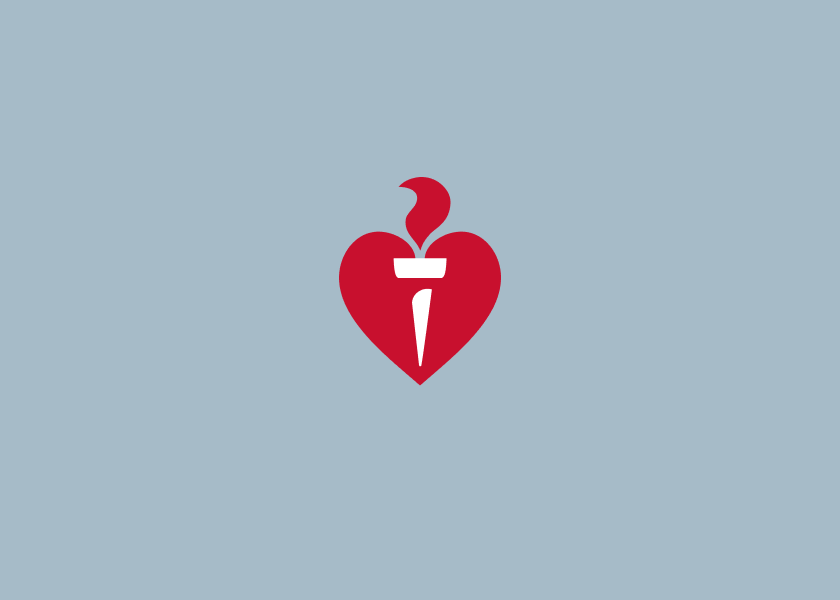
Understanding your heart medicines
Key takeaways
5 min read
- There are many different types of heart medicines. These include medicines to:
- manage blood pressure
- manage cholesterol
- stop blood clots forming
- control heart rate/rhythm
- prevent and treat angina (chest pain)
- manage heart failure.
- Taking your medicines can reduce the risk of heart problems and can help keep you out of hospital.
- Keep a list of your medicines, either on your phone or written down. There are also free medicine tracking apps. Take the list to all your health appointments.
- Your doctor or pharmacist can give you advice about your medicines. They can also help you find ways to get them at a lower cost.
Know the different types of heart medicines
The types of medicines you take will depend on your heart condition. Your doctor might prescribe more than one type of heart medicine.
Know which heart medicines you are taking and what they are for.
Click on the headings below to learn about types of heart medicines.
Medicines to manage blood pressure
Blood pressure medicines help to maintain a healthy blood pressure. This is important to improve the flow of oxygen-rich blood around the body. Some blood pressure medicines also help the heart to pump more easily.
Your doctor might prescribe a blood pressure medicine as part of a Heart Health Check. This is to reduce your risk of a heart attack or stroke.
If you have had a heart attack, your healthcare team may start you on blood pressure medicines in hospital. You’ll need to keep taking these over the long term.
Different types of blood pressure medicines include:
- Angiotensin-converting enzyme inhibitors (or ACE inhibitors). The names of these medicines often end in ‘pril’.
- Angiotensin receptor blockers (or ARBs). The names of these medicines often end in ‘sartan’.
- Beta blockers. The names of these medicines often end in ‘lol’. Beta blockers are also prescribed for abnormal heart rhythms (arrhythmias), heart failure and angina (chest pain).
- Calcium channel blockers. The names of these medicines often end in ‘pine’.
Medicines to manage cholesterol (lipid-lowering medicines)
Lipid-lowering medicines help to manage the levels of cholesterol and other fats in your blood. They can prevent fatty plaques building up in blood vessels (arteries).
High cholesterol is a risk factor for heart disease. Your doctor might prescribe a lipid-lowering medicine as part of a Heart Health Check. This is to reduce your risk of a heart attack or stroke.
If you have had a heart attack, your healthcare team may start you on lipid-lowering medicines in hospital. You’ll need to keep taking these over the long term.
Examples of lipid-lowering medicines include statins, ezetimibe and a class of medicines called PCSK9 inhibitors.
Medicines to stop blood clots forming (anticoagulants and antiplatelets)
Anticoagulants and antiplatelets prevent blood clots forming. Anticoagulants can also treat existing blood clots.
These medicines reduce the risk of a heart attack or stroke by preventing clots from blocking the arteries that supply blood and oxygen to the heart and brain.
If you have a stent, these medicines can help prevent blood components from sticking together and forming clots.
People who have had a heart attack may need to take these medicines for several weeks or months.
You might also be prescribed medicines to stop blood clots forming if you have:
- abnormal heart rhythms
- had certain heart procedures.
Medicines to control heart rate and rhythm
Having an abnormal heart rate or rhythm means your heart is beating too fast, too slow or in an irregular way (for example, atrial fibrillation).
Examples of medicines to help stabilise the heart rate and rhythm include:
- adenosine
- amiodarone
- digoxin
- flecainide
- sotalol
- verapamil
Medicines to prevent and treat angina (chest pain)
These medicines are known as ‘nitrate medicines’. They improve the flow of oxygen-rich blood to the heart muscle.
Nitrate medicines come in different forms and are often prescribed after a heart attack or angina episode.
- Long-acting nitrate medicines can be taken every day to prevent angina, in the form of a tablet or patch.
- Short-acting nitrate medicines can be taken when a person is having an angina episode. They come in the form of a tablet or spray that goes under the tongue. If you are prescribed this type of medicine, be sure to always keep it handy.
Beta blockers can also prevent angina.
Medicines to manage heart failure
Heart failure is a long-term condition where the heart doesn’t pump as well as it should. People with heart failure need to take multiple medicines. There are four main classes of medicines to manage heart failure.
- Angiotensin-converting enzyme (ACE inhibitors)/Angiotensin receptor blockers (ARBs)/ Angiotensin receptor-neprilysin inhibitors (ARNIs). These medicines block the effects of certain hormones, helping the blood vessels to relax, reducing strain on the heart and making it easier for your heart to pump blood around your body.
- Beta blockers. These medicines block the release of the stress hormones adrenaline and noradrenaline. This reduces heart rate, meaning the heart can pump blood around your body more efficiently. These medicines also help to manage blood pressure.
- Mineralocorticoid receptor antagonists. These medicines work by blocking the effects of the hormone aldosterone to improve the structure and function of the heart.
- Sodium glucose co-transporter 2 inhibitors. These medicines help to manage fluid levels. They also help lower blood pressure, improve blood sugar control, and reduce inflammation.
Managing your heart medicines
Keep a list
Keep a list of the medicines you take, either on a piece of paper in your wallet or on your phone. There are also free medicine tracking apps available like MedicineWise: Manage Medicine.
For each medicine, it’s helpful to make a note of:
- the name of the chemical (active ingredient) and the brand name
- the strength and dose
- when and how often to take the medicine
- how to take the medicine (for example, with food)
- what the medicine is for
- the type of medicine (prescription or over-the-counter)
- what to do if you miss a dose
- any possible side effects and what you should do if you get a side effect.
Take your medicines list to all your health appointments.
Don’t forget over-the-counter medicines
Remember to always let your doctor or pharmacist know what over-the-counter medicines you are taking. Over-the-counter medicines are medicines you can buy from a pharmacy, supermarket or health food shop without a prescription. Examples include pain medicines, cold and flu medicines, supplements and vitamins. Some over-the-counter medicines can interact with your heart medicines.
Managing the cost
Many heart medicines are available on the Pharmaceutical Benefits Scheme (PBS). This means the out-of-pocket cost (or ‘co-payment’) is less if you have a Medicare card. The cost will be even less if you have a concession card.
The Pharmaceutical Benefits Scheme Safety Net can help reduce the cost of your medicines. If you spend a certain amount on PBS medicines in a calendar year, you can apply for a PBS Safety Net card.
Your pharmacist might ask you if you’d like the cheaper (or generic) brand of a medicine. Generic medicines are as effective and safe as brand name medicines. This is because they contain the same chemical (active ingredient).
Find out more about your heart medicines
Your doctor or pharmacist can answer any questions you have about your heart medicines.
Other reliable sources of information include:
- Consumer medicines information leaflet. The leaflet comes with most medicines. It explains what the medicine is for, how to take it, and if there are any side effects. If you didn’t receive this, ask your doctor or pharmacist. You can also look a leaflet up on the NPS MedicineWise website.
- Home Medicines Review. This is when your pharmacist checks the medicines you are taking at home. They can make sure you are taking the right medicines in the right way. A Home Medicines Review might be helpful if you:
- are taking more than five medicines a day
- have recently been in hospital
- are confused or worried about your medicines
- are having trouble remembering to take your medicines.
- Medicines Line (1300 MEDICINE or 1300 633 424). This is a free telephone service. Registered pharmacists answer your questions about prescription and over-the-counter medicines.
References
- Australian Medicines Handbook. Cardiovascular drugs. 2024. Accessed 10 Jan 2025. https://amhonline.amh.net.au/
- Brieger D, Cullen L, Briffa T et al. National Heart Foundation of Australia & Cardiac Society of Australia and New Zealand. Australian clinical guideline for diagnosing and managing acute coronary syndromes 2024. (In draft).
- Straw S, McGinlay M, Witte KK. Four pillars of heart failure: contemporary pharmacological therapy for heart failure with reduced ejection fraction. Open Heart. 2021;8(1):e001585. doi: https://openheart.bmj.com/content/8/1/e001585

Taking your heart medicines
Learn why heart medicines matter, how they help, and key tips for taking them safely. Stay heart-healthy with expert advice.

Heart medicines – Frequently asked questions
Find answers below to frequently asked questions about heart medicines.

Personalised medicine for cardiovascular diseases
This research is driven by clinically relevant problems of patients suffering from cardiovascular diseases (CVDs). My 1st theme focuses on advanced functional/molecular imaging technologies. Current clinical diagnostic imaging usually provides anatomical readouts only after irreversible damage & structural changes have occurred.
Last updated14 October 2025
Last reviewed29 April 2025
